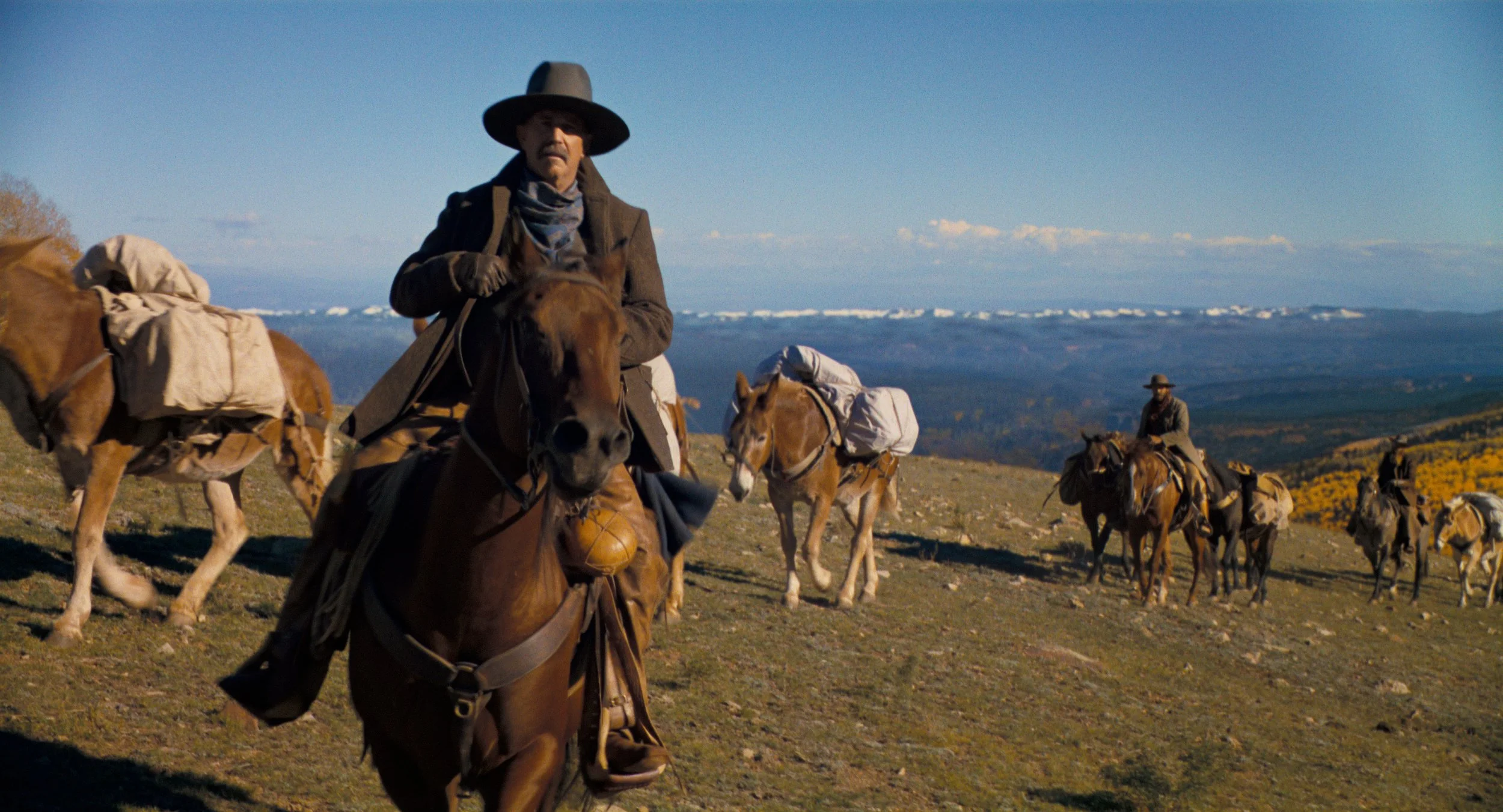Horizon: An American Saga - Chapter 1 | 2024
Kevin Costner in HORIZON: AN AMERICAN SAGA - CHAPTER 1. Courtesy of Warner Bros. Pictures.
While Francis Ford Coppola's Megalopolis may have captured much of the attention at this year's Cannes Film Festival, another self-financed passion project by an old-school Hollywood filmmaker made its debut on the Croisette to a much more muted response. Kevin Costner's Horizon: An American Saga - Chapter 1 is the first part of planned series of four films, one of which, Chapter 2, has already been shot and was planned for release in August before it was unceremoniously delayed due to Chapter 1's underwhelming performance at the box office.
Costner has been in some stage of development for these films since 1988 when he first began work on the script, before making his Oscar winning epic, Dances with Wolves. He pitched the movie to Disney in 2003, but the project ultimately fell through, leading to Costner investing more than $35 million of his own money (some reports put it at around $77 million) to make his long-gestating dream project a reality.
While some may see this as folly, the final product is truly something to behold: a sprawling Western on an epic scale that feels as vast and mythical as the American West itself. As the states to the east are embroiled in civil war, Horizon weaves together the stories of a disparate group of characters, all converging on the promise of a western town called Horizon. Loners, cattle drivers, settlers, prostitutes, artists, merchants, schemers, thieves, Chinese railroad workers, and Native Americans who seek to stop the incursion of white settlers, and those who seek to make peace with it.
For these people, Horizon represents a kind of unrealized promise, a symbol of the American dream, always just out of reach, increasingly difficult to obtain. Costner's characters make up a cross-section of early American life, and while the film's tone has a certain kind of romance, he doesn't shy away from the darkness of Western expansion and its effects on the land and its people. There is a sense of inevitability to the march of time here; everyone is just trying to hang on as the winds of change carry them along.
Courtesy of Warner Bros. Pictures.
I find it fascinating that the central focus of the film, the siren song that drives them all forward, is, in essence, a lie—it is a ruin in a hostile land that is nevertheless viewed as a beacon of hope by those who pursue it. While Horizon isn't necessarily a revisionist Western, it reframes some of the genre's tropes to examine the messiness of American expansion in ways that are more John Ford than Sergio Leone.
Yet what might be most striking about Horizon is its craft. As he did with Dances with Wolves and Open Range before it, Costner has clearly put an incredible amount of care into the film's construction: the sets feel tangible and lived-in, the cinematography is grand and sweeping, the characters are well-drawn and engaging, and the film feels like a grand old-school epic in ways that we rarely see anymore. This is a true "they don't make 'em like this anymore" event.
With the potential for three more films (Chapter 1 clocks in at three hours long), Costner's ambition is as expansive as the wide-open western vistas he captures. Yet this is no mere vanity project; Horizon is a tremendous piece of work, a gorgeously rough-hewn tapestry of American mythmaking that history will likely be kinder to than its lukewarm box office suggests.

